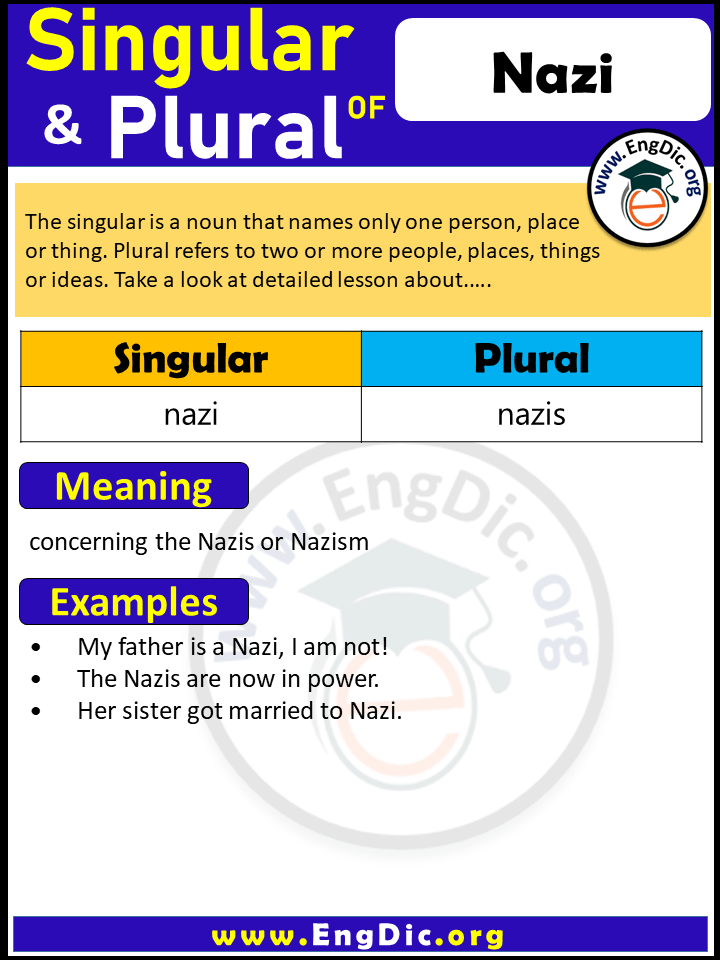Meaning: previous statement from which another is inferred
Singular and Plural of Premise
| Singular | Plural |
| premise | Premises |
Premise as a Singular Noun in Example Sentences:
- The premise of the story is intriguing.
- He didn’t agree with the premise of the argument.
- The premise of the movie was unrealistic.
- She questioned the premise of the theory.
- The premise of the book was controversial.
- They based their conclusion on a faulty premise.
- The premise of the plan seemed promising.
- He accepted the premise without further questioning.
- The success of the project depends on the premise.
- They failed to establish a solid premise for their research.
Premise as a Plural Noun in Example Sentences:
- The premises of the company were well-maintained.
- They inspected the premises for any potential hazards.
- The security guard patrolled the company’s premises.
- Visitors are not allowed on the factory premises.
- The landlord is responsible for maintaining the rental premises.
- They searched the suspect’s premises for evidence.
- The premises were evacuated due to a fire alarm.
- The lease agreement specifies the condition of the premises.
- They conducted a thorough investigation of the crime premises.
- The company invested in upgrading its office premises.
Singular Possessive of Premise
The singular possessive form of “Premise” is “Premise’s”.
Examples of Singular Possessive Form of Premise:
- Premise’s importance is crucial to the argument.
- The philosopher questioned the validity of Premise’s assumptions.
- Premise’s logical foundation forms the basis of the theory.
- The mathematician analyzed Premise’s implications in the equation.
- Premise’s clarity strengthens the overall argument.
- The debater challenged the validity of Premise’s conclusion.
- Premise’s relevance to the topic cannot be ignored.
- The scientist evaluated the experimental design’s Premise’s.
- Premise’s sound reasoning contributes to persuasive writing.
- The lawyer presented compelling evidence to support Premise’s.
Plural Possessive of Premise
The plural possessive form of “Premise” is “Premises'”.
Examples of Plural Possessive Form of Premise:
- The lawyers’ arguments relied on strong Premises’.
- The researchers’ study explored different Premises’ for the hypothesis.
- The architects’ designs incorporated sustainable Premises’.
- The philosophers’ theories built upon existing Premises’.
- The investigators’ conclusions were based on valid Premises’.
- The debaters’ counterarguments challenged the opponents’ Premises’.
- The scholars’ analyses uncovered flaws in the existing Premises’.
- The educators’ lesson plans emphasized critical thinking about Premises’.
- The writers’ narratives weaved together multiple Premises’ for a complex story.
- The researchers’ collective work contributed to expanding the field’s Premises’.






